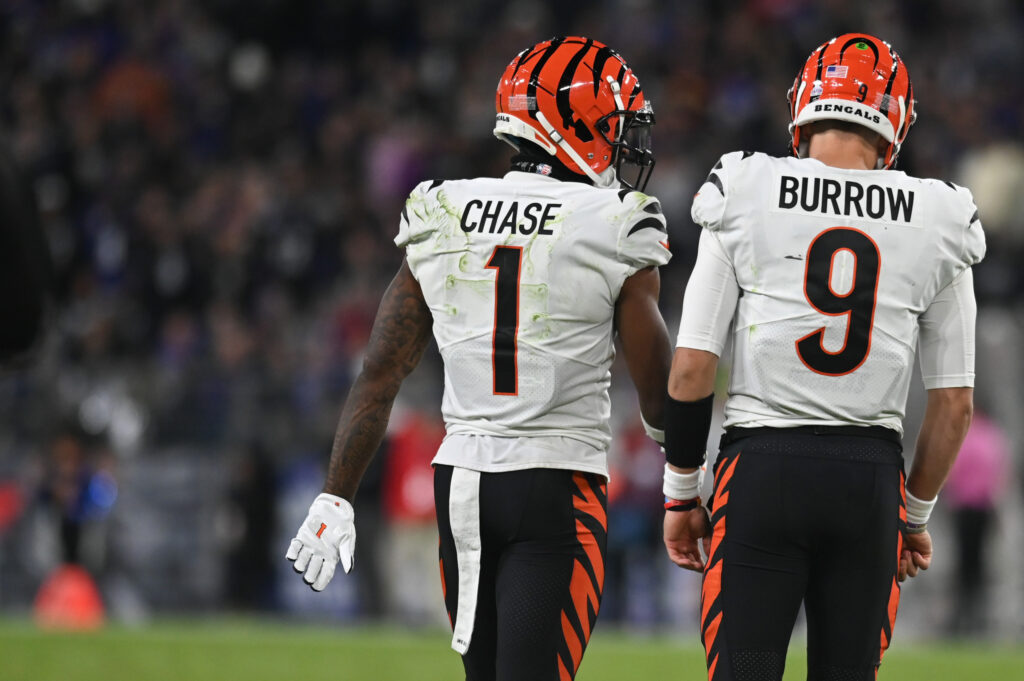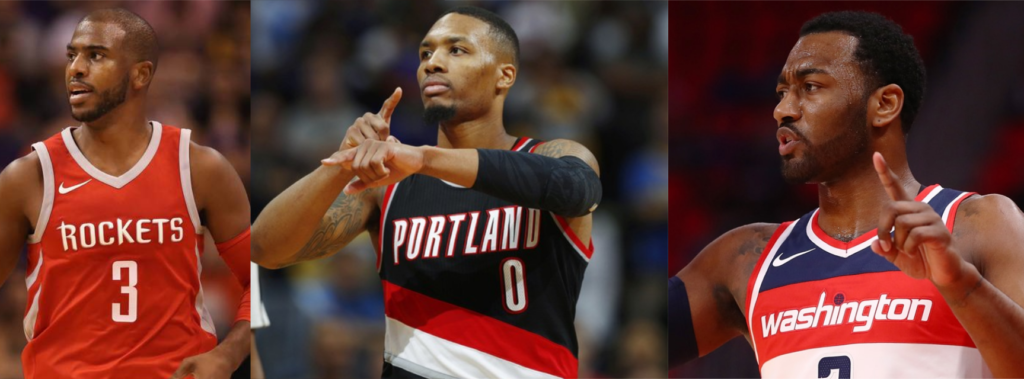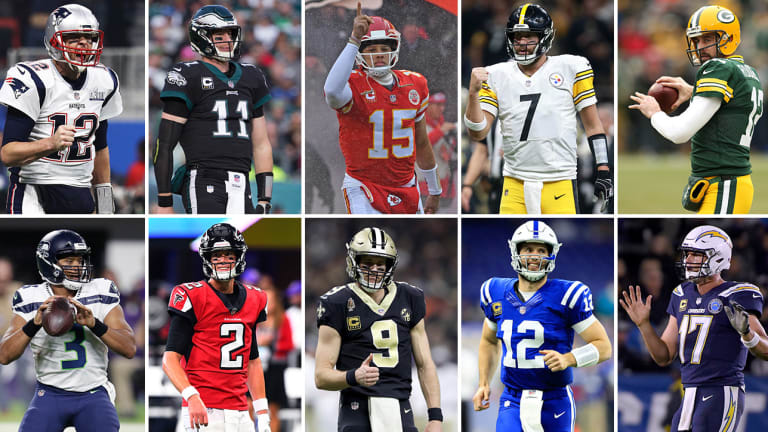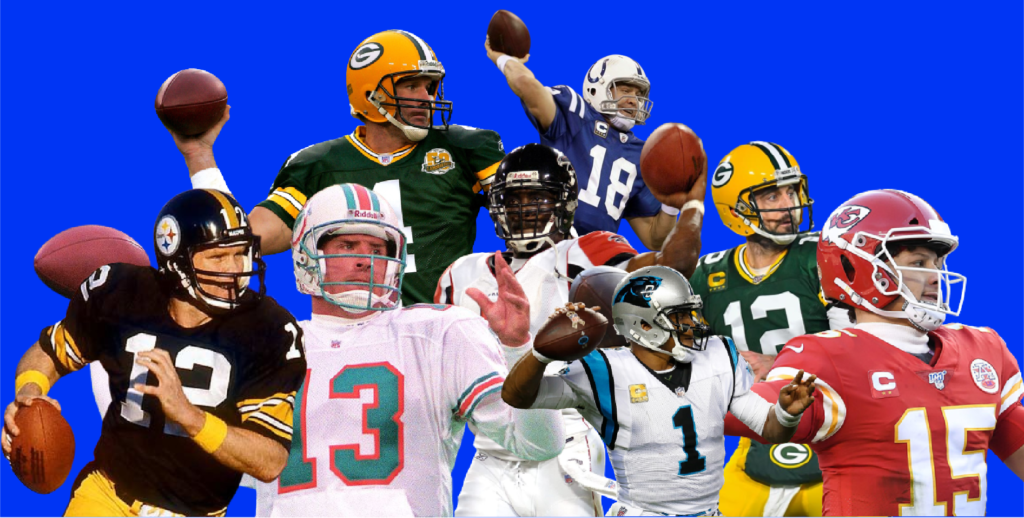Yes, wins are a QB stat.
I’ll make it simple:
Over a large sample of seasons, wins are QB stat. This is because a great QB usually has three big traits: clearly defined skills, great leadership, and consistency (consistent play, and also avoiding injury). And when a QB has those traits, the talent of the team usually shines more (as a talented QB can make the accurate throws, extend the plays, make the necessary audibles, deliver in big moments, and get the team to play hard), and more importantly, its easier for the team to draft players (because the QB has clear skills you can build around), and attract veteran free agents.
An example of this is Cincinnati: Joe Borrow has a very good arm, is smart, is decisive (Burrow’s ability to get rid of the ball quickly has been instrumental in helping the team thrive despite inconsistent o-line play), and is a strong leader with great intangibles.
As a result, in the 2021 season, Cincinnati didn’t need to draft a tackle in the first round; they could instead get him a deep threat receiver like Jamar Chase, because Borrow has the arm strength and guts and accuracy to hit him deep, and because he’s good enough in the pocket to make up for a bad offensive line. And lastly, Joe Mixon – who was already a good running back – can shine more since the defense has to respect Chase and Burrow’s deep ball.

Just like that, the Bengals are legitimate AFC team. Burrow’s skills made it easier for the Bengals to give him an effective team. It’s not “luck”. Especially since many thought Burrow should have tried to dodge the Bengals, including former Bengals QB Carson Palmer.
The reality is that the QB is the most important position on the field – their play augments the team’s defensive performance (by keeping them off the field, or giving them a lead to work with which makes it easier for them since the other team has to predictably pass the ball more to keep up), their leadership gets guys to buy in, their accuracy and decision making and ability to process defensive coverages and know their own playbook can allow the offense to operate competently even if receivers aren’t wide open or aren’t great, and even if his offensive line is mediocre. QBs can make their receivers better. This is something that Belichick raved about with Tom Brady.
QBs, by virtue of leading game-winning drives, are usually able to literally win a handful of games per season at the very end.
Basically, in short, wins are a QB stat because throughout one’s career, things tend to fall in place if the QB is good.
What people get tripped up on is this: “How can wins be a QB stat? What if the QB has a bad defense, terrible coaching, terrible receivers, and a bad o-line?”
Well… obviously if a QB has all those things being bad, then most people won’t blame them for every loss.
But the reality is that most QBs aren’t going to have all of that at once for their whole career. They may have a bad defense, but decent receivers. Or a bad line and receivers, but decent run game and a competent defense. They will usually have – at some point – just enough around them that they can have opportunities to be clutch or put up points to prove their worth. And when this happens, teams have an easier time figuring out their needs in the draft, and have an easier time attracting free agents is easier. Hence why over a large sample size of multiple seasons, wins are a QB stat.
This is why even a QB like Drew Brees – who had some bad defenses with the Saints – is still healthily above .500 (.601) as a starter.
A good example of the sample size phenomenon can be found with Ryan Tannehill. Tannehill did not thrive in Miami. Many would point out the flaws in Miami’s roster construction – as Tannehill did not have a great supporting cast there. Many pointed out his own individual flaws – decision making, deep-ball accuracy, etc. In any case, he got a fresh start in Tennessee, with an amazing running back, and a good receiving group featuring A.J Brown. And he played well! In the regular season. In the playoffs, however, the team only won when he had to be severely limited. When he had to do a little more – like in the 2019 AFC title game, the 2020 Wild Card round, and the 2021 Divisional round, Tannehill’s flaws got exposed. His flaws with diagnosing zone defenses, his poise, and his inconsistency of timing and accuracy with certain routes was put on display (and led to interceptions). And because this happened 3 years in a row, guess what? The team didn’t last. Because that’s what happens. GMs for whatever reason, tend to let certain players walk in free agency or even trade them when a team is losing. A.J Brown went to Philadelphia – Tannehill lost his best receiver. Does that happen if Tannehill had done his part one just one of those playoff games and they made it further – even to a Super Bowl?
And guess what? You see how Tannehill’s W-L record evens out now? He is mediocre with the Dolphins, good with the Titans for now – but will probably decline if he disappoints again this season, and gets shipped off to another team. Right now he has a .545 win percentage.
A good case to look at looking ahead in the 2023 season will be Sam Darnold: we all know he had little to work with in the Jets. But many still found certain flaws in his game – namely his poise under pressure, and decision making. In the Panthers this season (2022), his offensive line was much better, and his receiving targets weren’t bad. Darnold somehow got outplayed by Baker, unfortunately, in training camp and thus didn’t start. But at the end of the year, Darnold played and was solid, and consequently, has played decently enough that he is still in the league and will probably get chances to start eventually.
Want another example? Dak Prescott – who we define as “mid” – has had good rosters around him, so his W-L record is good and thus “skewed” – but his playoff disappointments are putting a timer on him. If he fails again… he’ll probably get shipped off and have to compete for a starting job on a team that may be slightly worse in some respects – maybe they don’t have the best offensive line, for instance. And if he struggles there – he may have to compete for a job or even come in as a backup in an even worse situation. And thus, his W-L record will even out. Because if you are truly good, things won’t fall apart around you as much. Your GM (as referenced a few paragraphs above with Tannehill) may be more willing to spend, or keep certain players, your front office may have an easier time filling holes in the team, your coach may be able to emphasize or focus more on other areas, or free agents may be willing to take a discount to join your team. Not all of this will happen, but usually at least a few of them will.
The reality is that when you remove the outliers – the bottom 5 teams, and top 5 teams – most NFL teams have a similar level of talent (on average. Some years the number is slightly different. Especially with bad offensive schemes). The main difference is usually the QB play.
“What about bad teams like the Texans and Jaguars and Lions, huh?”
Well, yeah, obviously there are bad teams that have very few good players. That’s why I said over a large sample of seasons.
The simple reality is that the QB has an outsized impact on the game. Yes, offense is just “33%” of the game, along with defense and special teams. The impact of offense – namely, the QB – is larger.






The Over Time Argument some people put forth is also nonsense. There is no guarantee that over time a QB will get a good defense at some point even if he gets a good defense down the road he might have a bad OL by the time he gets a good defense or he can get a bad OC or the HC could lose the team or receivers might get injured or retire or he might have a down year that 1 year his defense is great. The NFL is after all Not For Long and that doesn’t guarantee things get better. The Over Time Argument is nonsense because there is no guarantee that the team ever gets to the point where it is enough to win. Look at Stafford he has a life time losing record yes Detroit had 1 good year but over time made no difference to his record he goes to a good team he wins every year and has a SB what if Stafford played his whole career in LA? Look at Cousins vs Burrow their regular season record is virtually the same but in the playoffs… yes they have played virtually the same – so what’s the difference Burrow’s defenses have played much much better than Kirk’s defenses.
If Kirk stayed in WAS he probably has a losing record you put Kirk in SF and he likely has at least 1 SB with many more wins. Kirk has a better won loss record than Herbert Lawrence Murray Stafford etc.
Stafford has a higher win percentage with the Rams (58%) than he did with the Lions (45%). His Rams stint raised his win percentage up to 48% – 3 whole points. That’s not great, but if he stays there for a bit it will help repair his W-L record.
Derek Carr also proves the point – he got to play with the Saints – who have a really good defense – but he still didn’t perform.
There are no guarantees of course, but it usually happens. Cousins got to go to the Vikings and then a team like the Falcons, for example.